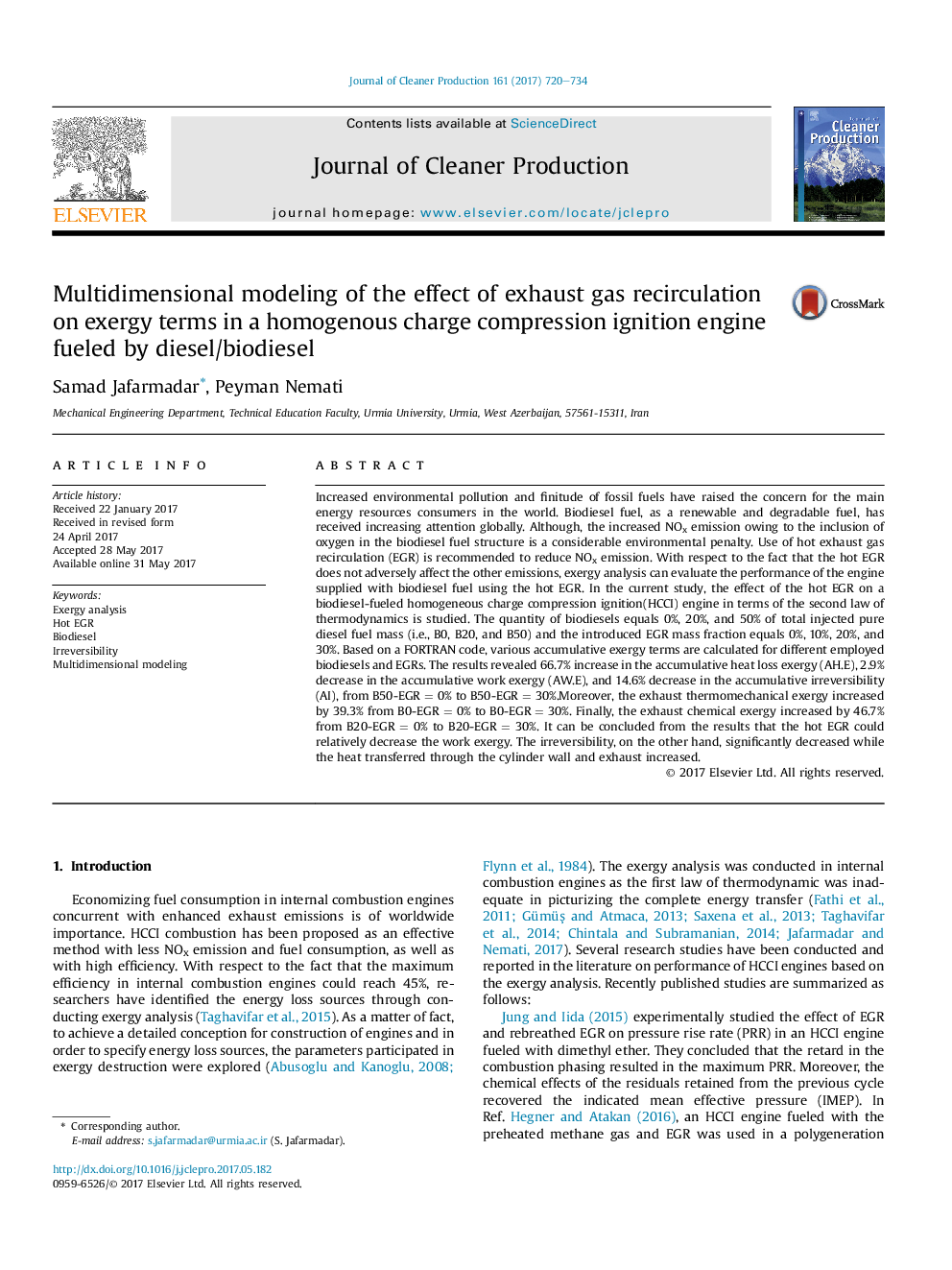| کد مقاله | کد نشریه | سال انتشار | مقاله انگلیسی | نسخه تمام متن |
|---|---|---|---|---|
| 5480873 | 1522093 | 2017 | 15 صفحه PDF | دانلود رایگان |
- Effect of EGR on exergy terms in HCCI engine fueled by diesel/biodiesel is studied.
- Biodiesel increases irreversibility but decreases accumulative heat loss exergy.
- Hot EGR reduces irreversibility and accumulative work exergy.
- Hot EGR increases accumulative thermomechanical and chemical exergies.
- Hot EGR increase improves the HCCI combustion control.
Increased environmental pollution and finitude of fossil fuels have raised the concern for the main energy resources consumers in the world. Biodiesel fuel, as a renewable and degradable fuel, has received increasing attention globally. Although, the increased NOx emission owing to the inclusion of oxygen in the biodiesel fuel structure is a considerable environmental penalty. Use of hot exhaust gas recirculation (EGR) is recommended to reduce NOx emission. With respect to the fact that the hot EGR does not adversely affect the other emissions, exergy analysis can evaluate the performance of the engine supplied with biodiesel fuel using the hot EGR. In the current study, the effect of the hot EGR on a biodiesel-fueled homogeneous charge compression ignition(HCCI) engine in terms of the second law of thermodynamics is studied. The quantity of biodiesels equals 0%, 20%, and 50% of total injected pure diesel fuel mass (i.e., B0, B20, and B50) and the introduced EGR mass fraction equals 0%, 10%, 20%, and 30%. Based on a FORTRAN code, various accumulative exergy terms are calculated for different employed biodiesels and EGRs. The results revealed 66.7% increase in the accumulative heat loss exergy (AH.E), 2.9% decrease in the accumulative work exergy (AW.E), and 14.6% decrease in the accumulative irreversibility (AI), from B50-EGRÂ =Â 0% to B50-EGRÂ =Â 30%.Moreover, the exhaust thermomechanical exergy increased by 39.3% from B0-EGRÂ =Â 0% to B0-EGRÂ =Â 30%. Finally, the exhaust chemical exergy increased by 46.7% from B20-EGRÂ =Â 0% to B20-EGRÂ =Â 30%. It can be concluded from the results that the hot EGR could relatively decrease the work exergy. The irreversibility, on the other hand, significantly decreased while the heat transferred through the cylinder wall and exhaust increased.
Journal: Journal of Cleaner Production - Volume 161, 10 September 2017, Pages 720-734
